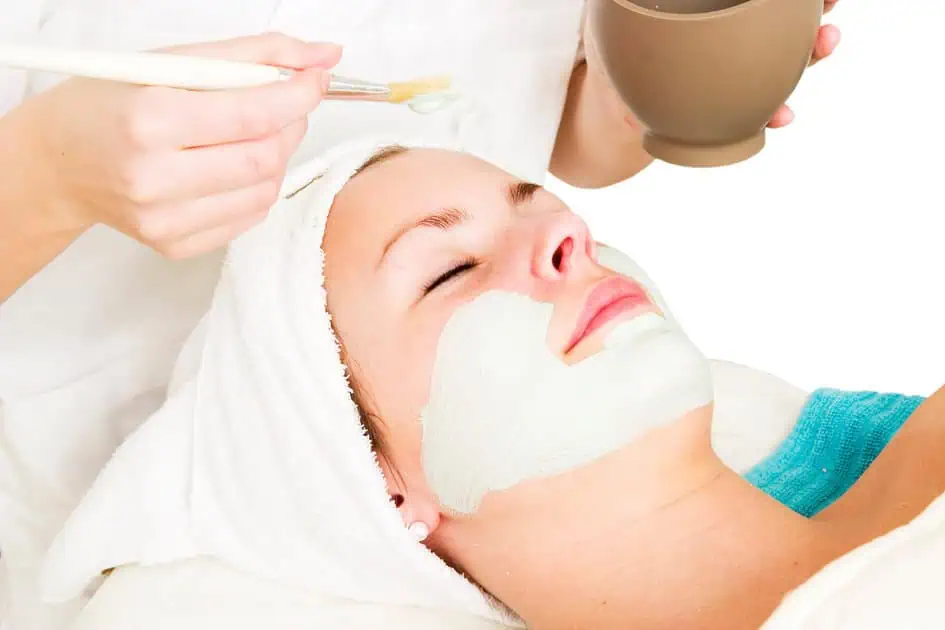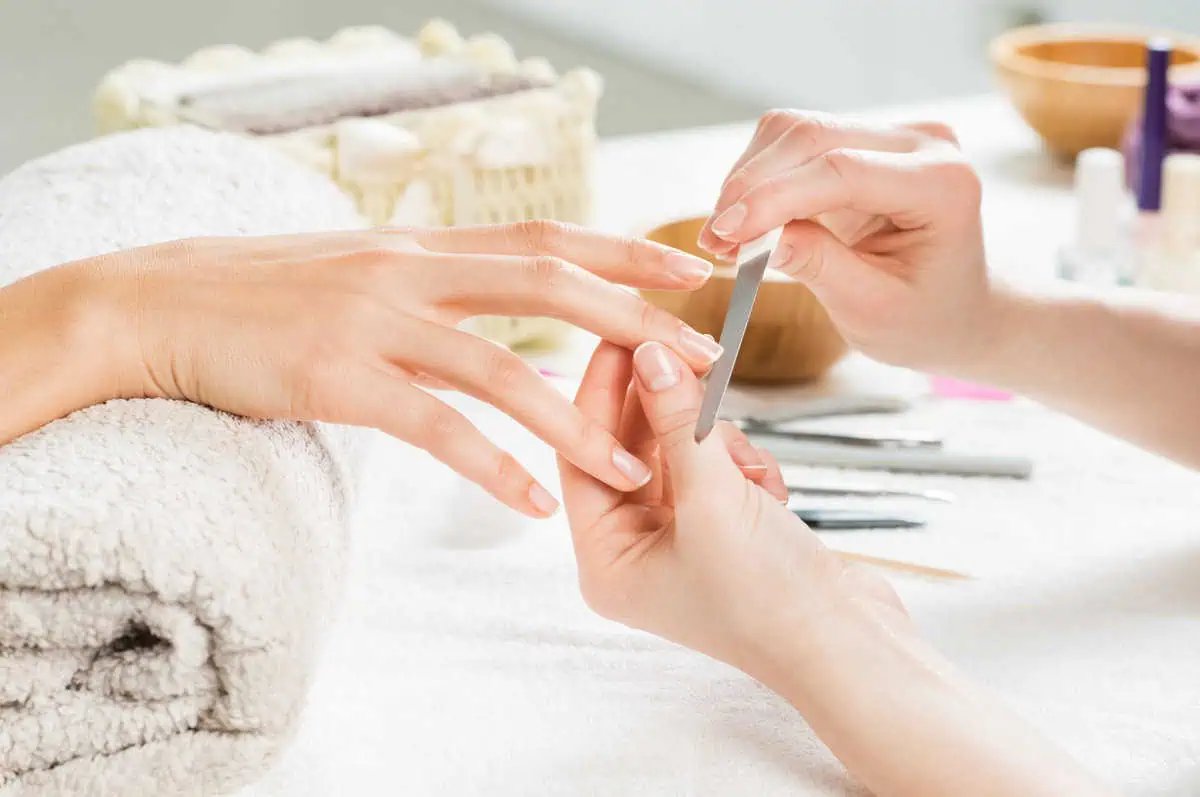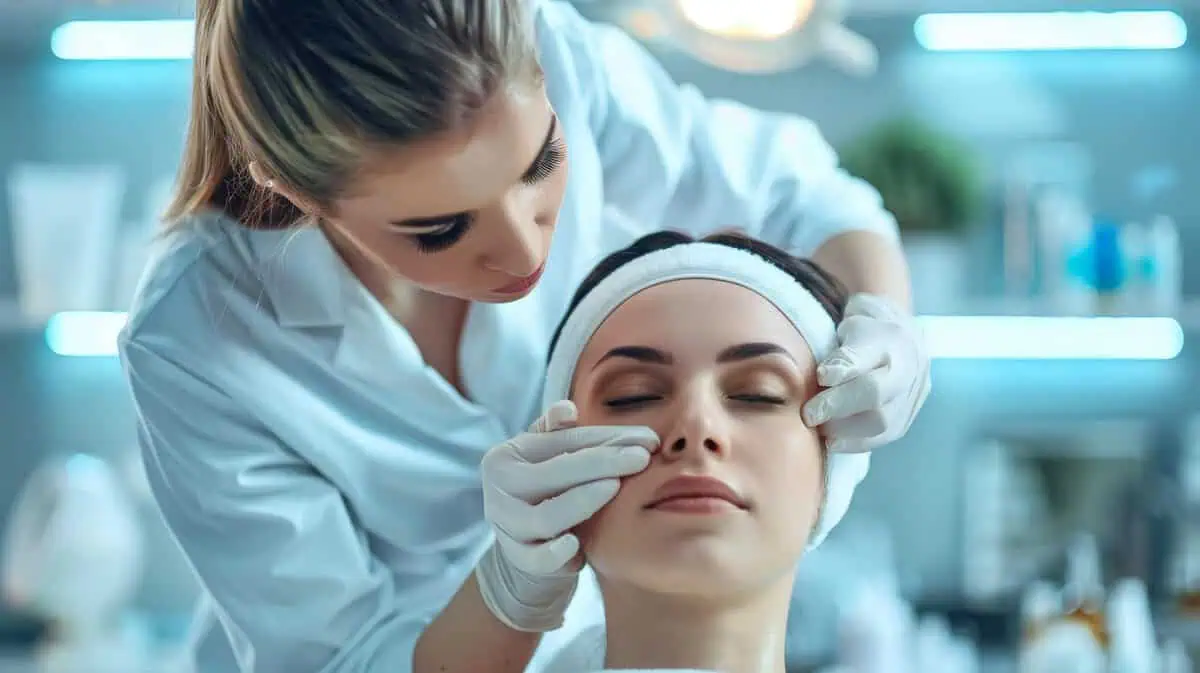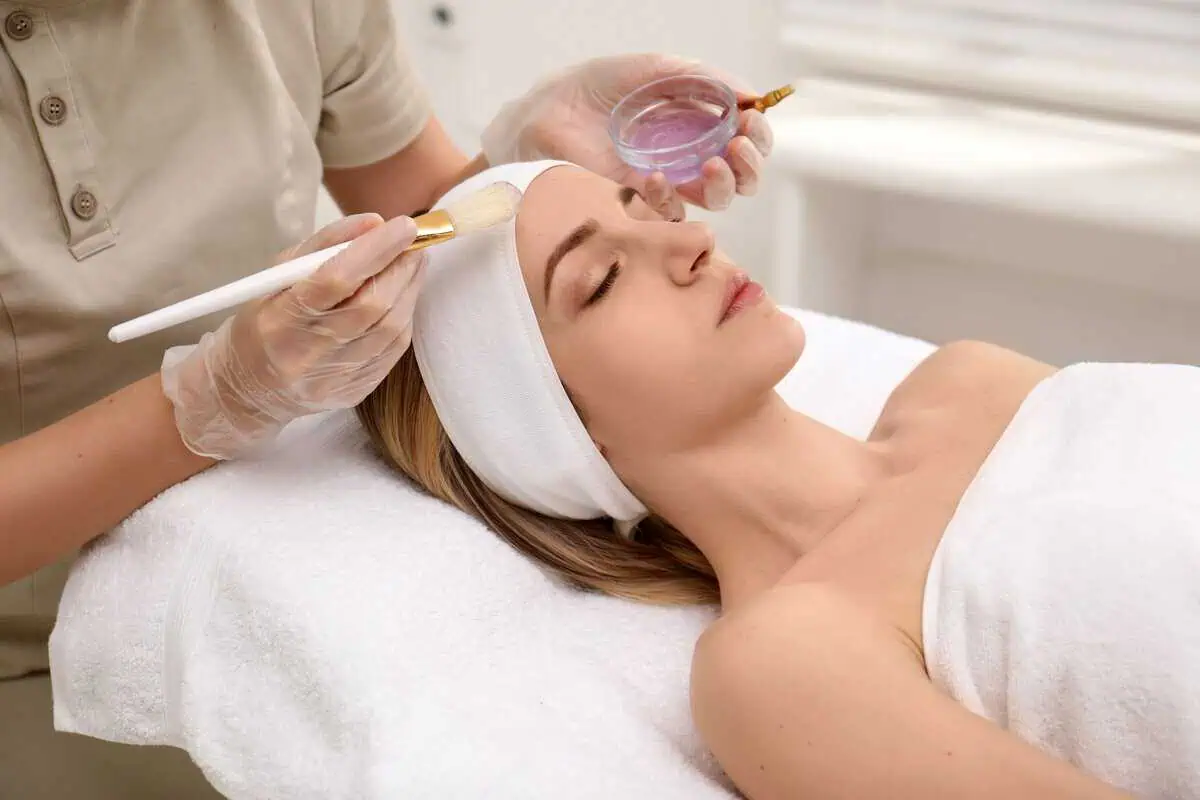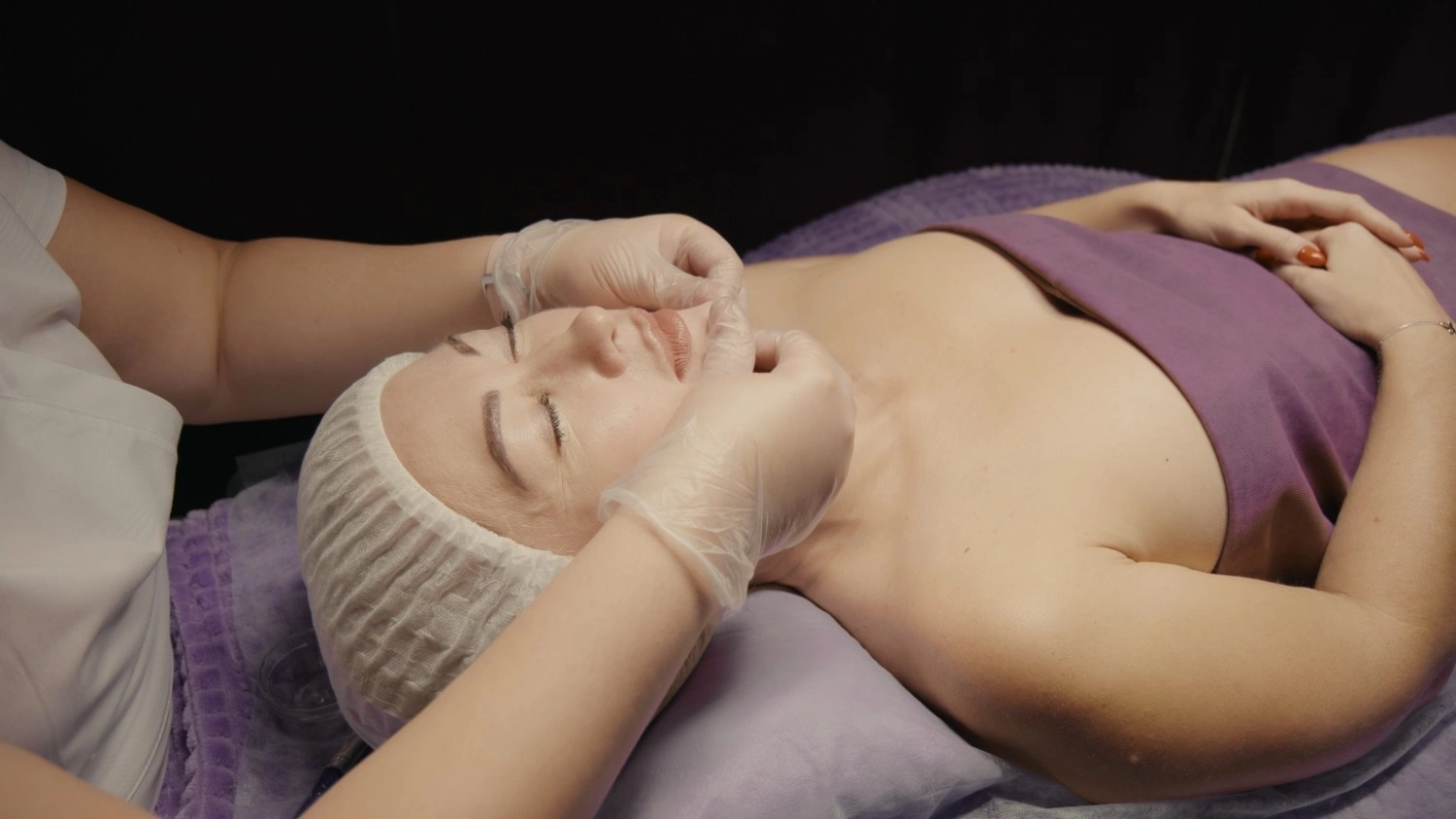Chemical peels have long been a cornerstone of skincare treatments, offering transformative results for various skin concerns. As the demand for advanced esthetic procedures continues to rise, mastering the art of chemical peels has become essential for estheticians seeking to expand their skills and enhance their expertise.
Meraki Esthetics Institute offers comprehensive, advanced esthetics courses covering chemical peel theory, techniques, and practical applications. In this detailed guide, we’ll explore what you can expect to learn in our advanced esthetics course, from understanding the science behind chemical peels to mastering the art of customization and client care.
Understanding Chemical Peels
Chemical peels are revolutionary skincare procedures that have several advantages, including a reduction in sun damage and symptoms of aging as well as an improvement in skin tone and texture. Understanding chemical peels involves exploring the science behind these treatments and how they work to rejuvenate the skin.
Whether you’re new to chemical peels or seeking to deepen your knowledge, this guide will provide valuable insights into the transformative power of these skincare treatments.
What are Chemical Peels?
Chemical peels are aesthetic procedures that include exfoliating and removing damaged outer layers of skin from the patient by administering a chemical solution. The technique results in smoother, brighter, and more youthful-looking skin by encouraging cell turnover and stimulating the creation of collagen.
How Do Chemical Peels Work?
Chemical peels work by causing controlled damage to the skin’s outermost layers, triggering the body’s natural healing response. Different types of chemical peels vary in their penetration depth and the specific skin concerns they target, ranging from superficial peels that address minor imperfections to deep peels that provide more dramatic results.
Types of Chemical Peels
Chemical peels offer a versatile solution for radiant, rejuvenated skin by exfoliating and removing damaged outer layers. Understanding the different types of chemical peels is essential for tailoring treatments to individual skin concerns and goals.
Superficial Peels
Lunchtime peels, sometimes referred to as superficial peels, are mild exfoliation procedures that focus on the skin’s outermost layer. These peels are typically made with alpha hydroxy acids (AHAs) or beta hydroxy acids (BHAs) and are ideal for improving skin texture, tone, and overall radiance.
Medium Peels
Medium peels penetrate deeper into the skin, targeting the epidermis and upper dermis. These peels are often formulated with trichloroacetic acid (TCA) and are effective for addressing moderate skin imperfections, such as fine lines, wrinkles, and mild discoloration.
Deep Peels
Deep peels penetrate the deepest layers of the skin, reaching the mid-dermis. These peels are usually made with phenol or high concentrations of TCA and are reserved for treating severe skin concerns, such as deep wrinkles, acne scars, and sun damage.
Benefits of Chemical Peels
Chemical peels have garnered widespread acclaim for their transformative effects on the skin. They provide many advantages to people who want to improve the look of their skin, ranging from lessening the appearance of sun damage and aging to improving the texture and tone of the skin. The benefits of chemical peels are diverse and far-reaching.
Improves Skin Texture and Tone
Chemical peels exfoliate the skin, removing dead cells and promoting cell turnover, resulting in smoother, more even skin texture and tone.
Reduces Hyperpigmentation and Discoloration
Chemical peels help promote uniform skin tone by preventing melanin formation and lightening hyperpigmentation, dark patches, and sun damage.
Minimizes Fine Lines and Wrinkles
Collagen synthesis is increased by chemical peels, which plumps up the skin and minimizes the look of wrinkles and fine lines.
Treats Acne and Acne Scars
Chemical peels can unclog pores, reduce inflammation, and improve the appearance of acne scars, making them an effective treatment for acne-prone skin.
What You’ll Learn in an Advanced Esthetics Course
Embarking on an advanced esthetics course is a journey of discovery and refinement, offering an opportunity to delve deeper into the art and science of skincare. In this introductory exploration, we’ll uncover the valuable insights and skills you’ll gain through an advanced esthetics course.
The possibilities for growth and expansion are endless, from mastering advanced techniques and treatments to honing your consultation and client care skills. Join us as we embark on a journey to unlock the secrets of advanced esthetics and empower yourself to elevate your practice and excel in the ever-evolving field of skincare.
Theory and Science Behind Chemical Peels
In an advanced esthetics course, you’ll understand the theory and science behind chemical peels, including the different types of peels, their mechanisms of action, and how to select the appropriate peel for each client’s skin type and concerns.
Practical Application and Techniques
You’ll learn hands-on techniques for performing chemical peels safely and effectively, including proper pre-treatment assessment, application methods, and post-treatment care. Practical training will also cover how to customize peel formulations and treatment protocols to meet individual client needs.
Client Consultation and Care
Effective client consultation is essential for successful chemical peel treatments. In an advanced esthetics course, you’ll learn how to conduct thorough skin assessments, communicate with clients about treatment options and expectations, and provide personalized skincare pre- and post-treatment care recommendations.
Safety and Risk Management
Chemical peels carry inherent risks, including irritation, redness, and hyperpigmentation. In an advanced esthetics course, you’ll learn how to identify potential contraindications, manage adverse reactions, and ensure client safety throughout treatment.
Business and Marketing Strategies
Integrating chemical peels into your esthetics practice requires effective business and marketing strategies. In an advanced esthetics course, you’ll learn how to market chemical peel treatments to attract new clients, maximize treatment outcomes, and build long-term client relationships.
Elevate Your Esthetics Practice with Advanced Chemical Peel Training
Mastering the art of chemical peels is a transformative journey that can elevate your esthetics practice and expand your career opportunities.
At Meraki Esthetics Institute, our advanced esthetics courses provide comprehensive training in chemical peel techniques, theory, and practical application, empowering estheticians to confidently deliver safe, effective, and personalized treatments to their clients. If you’re ready to take your esthetics skills to the next level and unlock the full potential of chemical peels, contact us today to learn more about our advanced esthetics courses and start your journey toward mastery.

